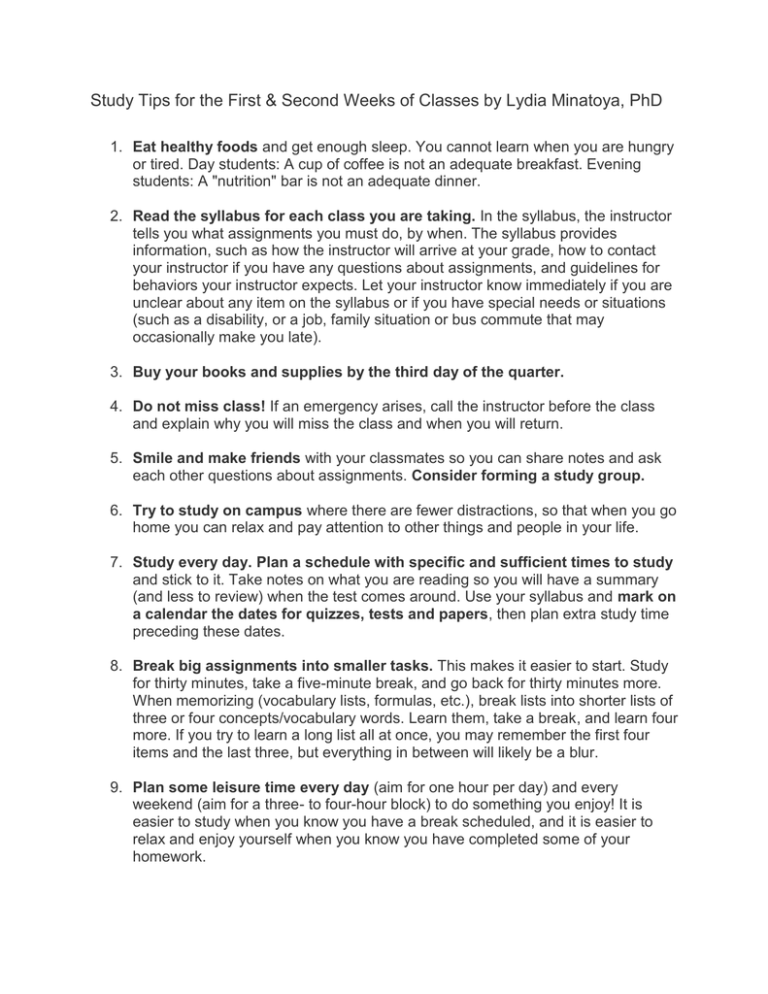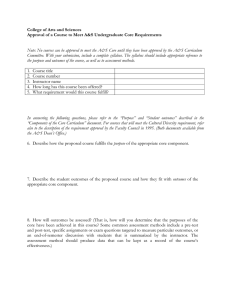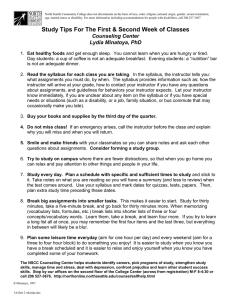Study Tips for the First & Second Weeks of Classes...
advertisement

Study Tips for the First & Second Weeks of Classes by Lydia Minatoya, PhD 1. Eat healthy foods and get enough sleep. You cannot learn when you are hungry or tired. Day students: A cup of coffee is not an adequate breakfast. Evening students: A "nutrition" bar is not an adequate dinner. 2. Read the syllabus for each class you are taking. In the syllabus, the instructor tells you what assignments you must do, by when. The syllabus provides information, such as how the instructor will arrive at your grade, how to contact your instructor if you have any questions about assignments, and guidelines for behaviors your instructor expects. Let your instructor know immediately if you are unclear about any item on the syllabus or if you have special needs or situations (such as a disability, or a job, family situation or bus commute that may occasionally make you late). 3. Buy your books and supplies by the third day of the quarter. 4. Do not miss class! If an emergency arises, call the instructor before the class and explain why you will miss the class and when you will return. 5. Smile and make friends with your classmates so you can share notes and ask each other questions about assignments. Consider forming a study group. 6. Try to study on campus where there are fewer distractions, so that when you go home you can relax and pay attention to other things and people in your life. 7. Study every day. Plan a schedule with specific and sufficient times to study and stick to it. Take notes on what you are reading so you will have a summary (and less to review) when the test comes around. Use your syllabus and mark on a calendar the dates for quizzes, tests and papers, then plan extra study time preceding these dates. 8. Break big assignments into smaller tasks. This makes it easier to start. Study for thirty minutes, take a five-minute break, and go back for thirty minutes more. When memorizing (vocabulary lists, formulas, etc.), break lists into shorter lists of three or four concepts/vocabulary words. Learn them, take a break, and learn four more. If you try to learn a long list all at once, you may remember the first four items and the last three, but everything in between will likely be a blur. 9. Plan some leisure time every day (aim for one hour per day) and every weekend (aim for a three- to four-hour block) to do something you enjoy! It is easier to study when you know you have a break scheduled, and it is easier to relax and enjoy yourself when you know you have completed some of your homework.



